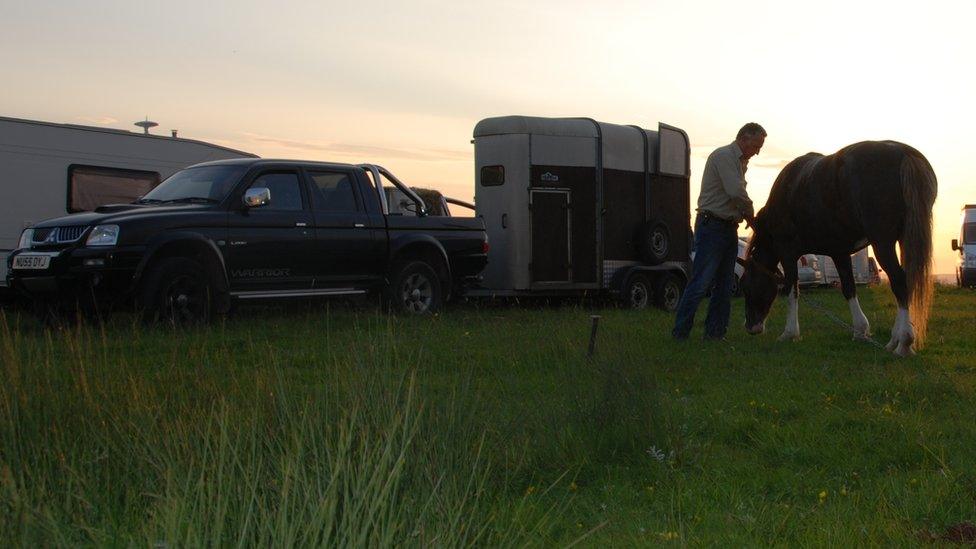How Gypsies have moved from fortune-telling to fervent Christianity
- Published
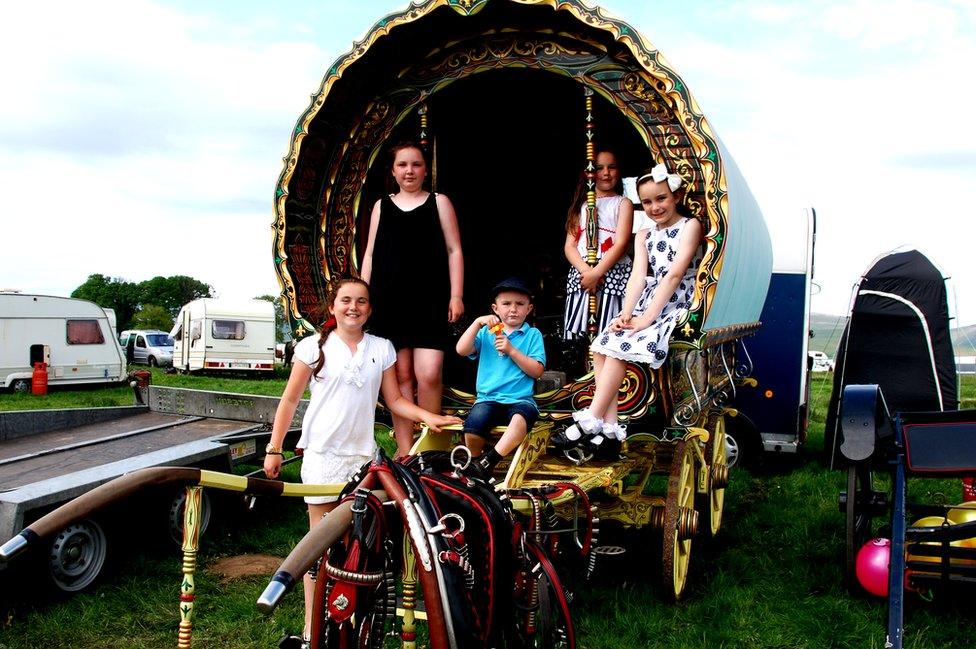
At a time when large numbers of people are drifting away from formal religion, one church is bucking the trend. Huge numbers of Gypsies and travellers in England now say they've joined a new movement called Light and Life. Those who join have given up drinking alcohol and fortune-telling, and many have even abandoned their traditional Catholic faith.
The Pentecostal movement, which is Gypsy-led, has grown rapidly in the past 30 years - it says up to 40% of British Gypsies belong to it. There's no way to prove that claim, but most Gypsies and travellers will agree that there is a surge in people joining.
It's centred on charismatic preaching, praying in tongues and miracle healing.
About 6,000 Gypsies and travellers attended to the Church's UK convention. Seven hundred caravans are parked around a blue and white big top, in the middle of an agricultural showground in the Welsh county of Carmarthenshire.
One of those caravans belongs to Diane Stephenson, a tall, blonde, motherly woman in her late 50s.
Her immaculate caravan is proudly decorated with displays of fine china and beautiful cut-glass vases. It's pitched right next to the giant tent, where that night's gospel service will be held.
She explains how a mission of French Gypsies visited the north-east of England in the early 1980s. Called Vie et Lumière on the continent, the movement had first taken hold there among Gypsy survivors of the Holocaust.
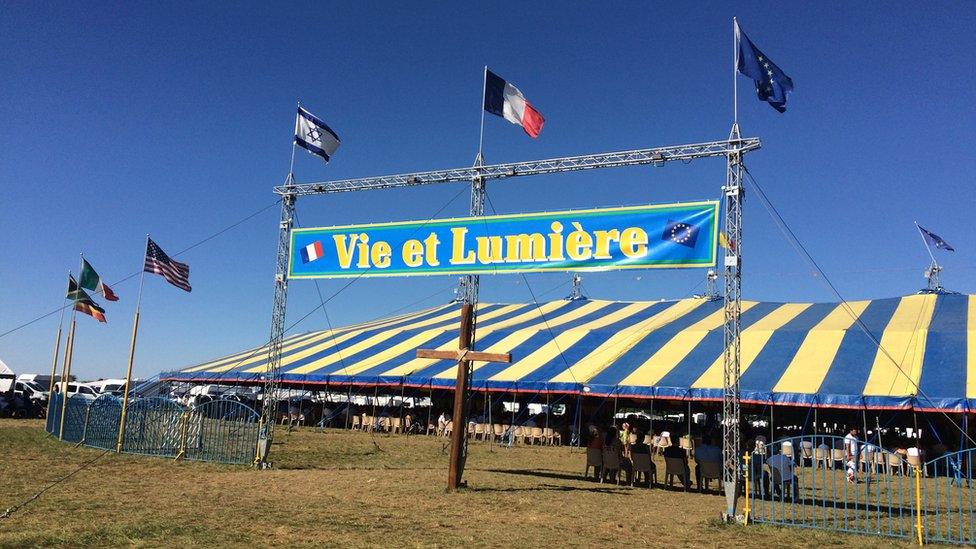
"Their visit sent out a real buzz," Diane says.
"People were ringing each other, saying there's French people here and they've brought this new religion."
It took 10 years, though, for her to be persuaded and join Light and Life. Why?
"My mother used to go out telling fortunes, selling lucky charms like many Gypsy women, and sometimes I'd accompany her.
"I didn't think it was wrong to do, it was just another way of earning a living."
Light and Life, though, regards fortune-telling as sinful. "It says in the Bible have nothing to do with sorcery and witchcraft," Diane explains.
The rain, which has been pouring down, lets up and Diane shows off the site. The whirr of the generators provides a background to the chatter and the shrieks of the children running through the puddles near the sweet stall. Meanwhile, men are congregating in groups, talking earnestly.
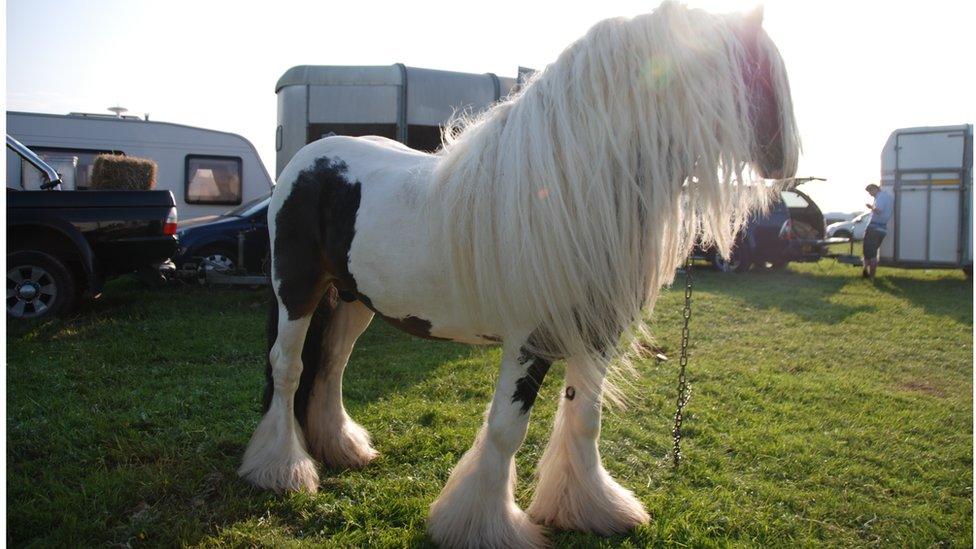
Among them is Peter, a good-looking, enthusiastic and smartly dressed man in his 40s. He's in a wheelchair after losing the use of his legs in a work accident.
"I see a great shift among Gypsies today. We've gone from being professional liars - and I was one of them," he says bluntly.
"Now, we don't want to live that life no more, because the Holy Spirit's inside us. We want to go 100% legal. That's what happens when you're born again," he adds. He along with most of the other men at the convention, is now teetotal.
Some observers are troubled by this story of redemption.
"There is a problem with alcoholism among our people," concedes Siobhan Spencer from the National Federation of Gypsy Liaison Groups.
"But the religion captures people who are in terrific trouble in their lives and so you hear a lot of those stories in the Light and Life Church. To say we're all liars is not a true portrayal of Gypsy culture."
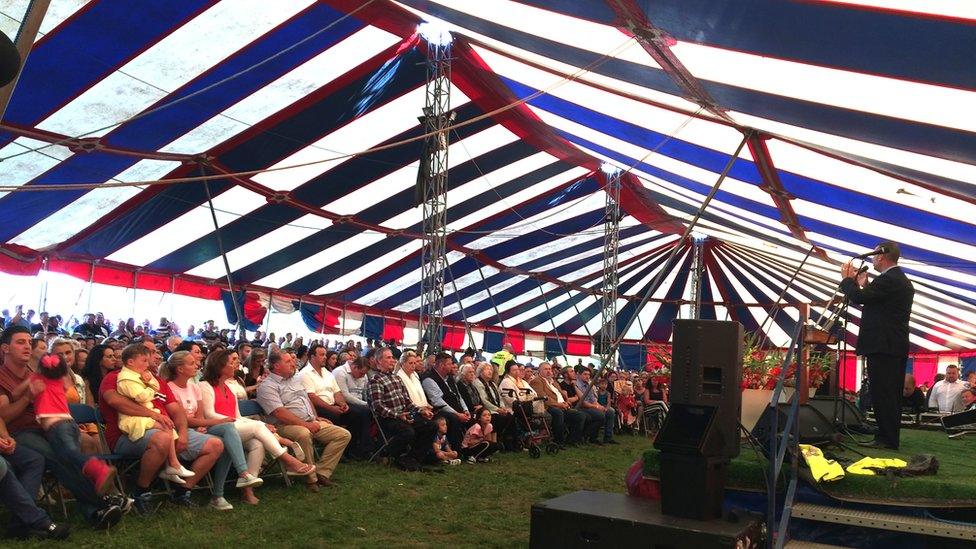
As night falls, worship begins in the big top.
The women sit together and cover their heads to pray. The atmosphere is electric. Three thousand people clap a beat and a single guitar starts the service. Then the chant begins.
"I will leave my sin, I will follow you," resonates around the big top.
The worship is led by Gypsy pastors, all men, who preach passionately, calling on those present for change.
But that change they are calling for often involves leaving the Catholic or Anglican faith that many Gypsies and travellers are born into.
"Gypsy people and travelling people have a very strong faith. Every one of them believes in God through Jesus Christ," says Billy Welch.
He's the organiser of the famous Appleby Horse Fair, in Cumbria, one of the most important events in the Gypsy and traveller calendar.
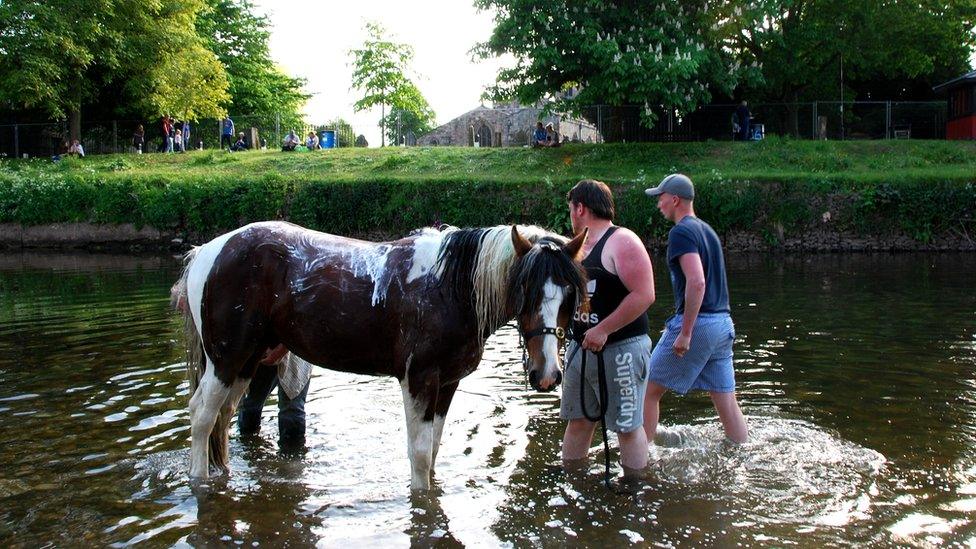
Sitting in the bright sunshine at his campsite on Fair Hill, Billy remembers how his father was one of the first people to be converted to the Light and Life.
"Compared to going to your traditional Protestant or Catholic churches, the Bible was explained the way it was written - not the way some man-made religion wants you to understand."
It's an oft-repeated view.
"I used to be a Catholic," one man says.
"But now I'm a Christian. A Catholic is lost in religion. They go through confession, and they go to a box and tell a priest about their sins. Where it says in the Bible 'tell no man your sin, come to the father alone'."
But why do followers of Light and Life so often describe Catholicism as "man-made"?
The Gypsies and travellers in the UK do have their own Catholic chaplain, Fr Dan Mason. He says Light and Life followers criticise the Church's rituals for not coming directly from the Bible.
"We take great comfort from the tradition that has evolved over the years, and I'd say that's the same for many members of the travelling community."
But Light and Life provides a sense of identity and belonging for many who join it, which he admits is "something that as Catholics we need to take seriously and look at how we can make our parishes more welcoming to all members of the community".
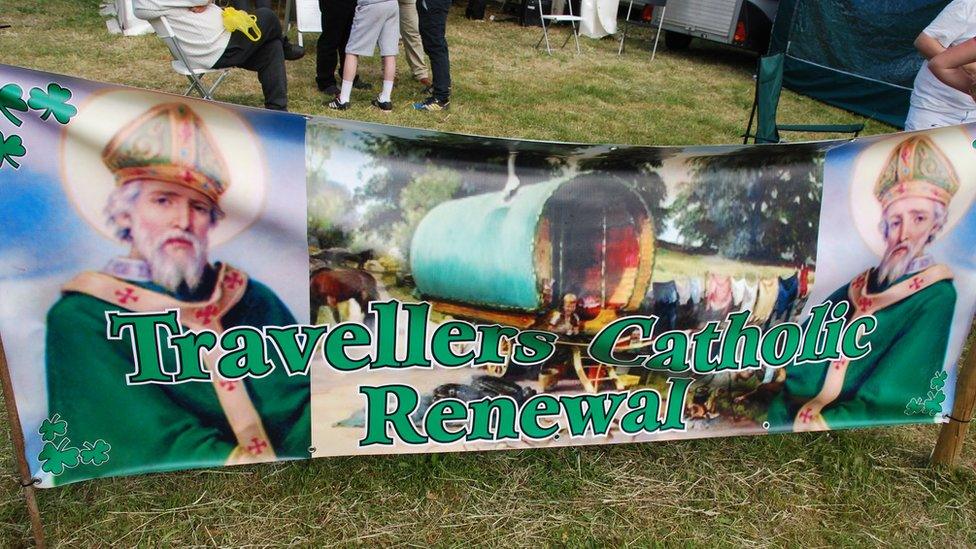
It's not just the Gypsies God wants to save, claims church elder, Pastor Jackie Boyd.
"England and Britain as a nation are going against the standards and principles of God in a big way. So we hope to see a revival and our people saved - but we want everyone to be saved."
Other churches, like the Salvation Army, are also seeing a growth in the number of Eastern European Roma joining. And the Church of England has several Gypsy-led congregations starting up.
So it seems that Christianity could be having a profound effect on this often marginalised community.
